What is Healthcare Digital Marketing?
In today's digital world, healthcare businesses are increasingly recognizing the importance of digital marketing in reaching and engaging with their target audience.


What is Healthcare Digital Marketing?
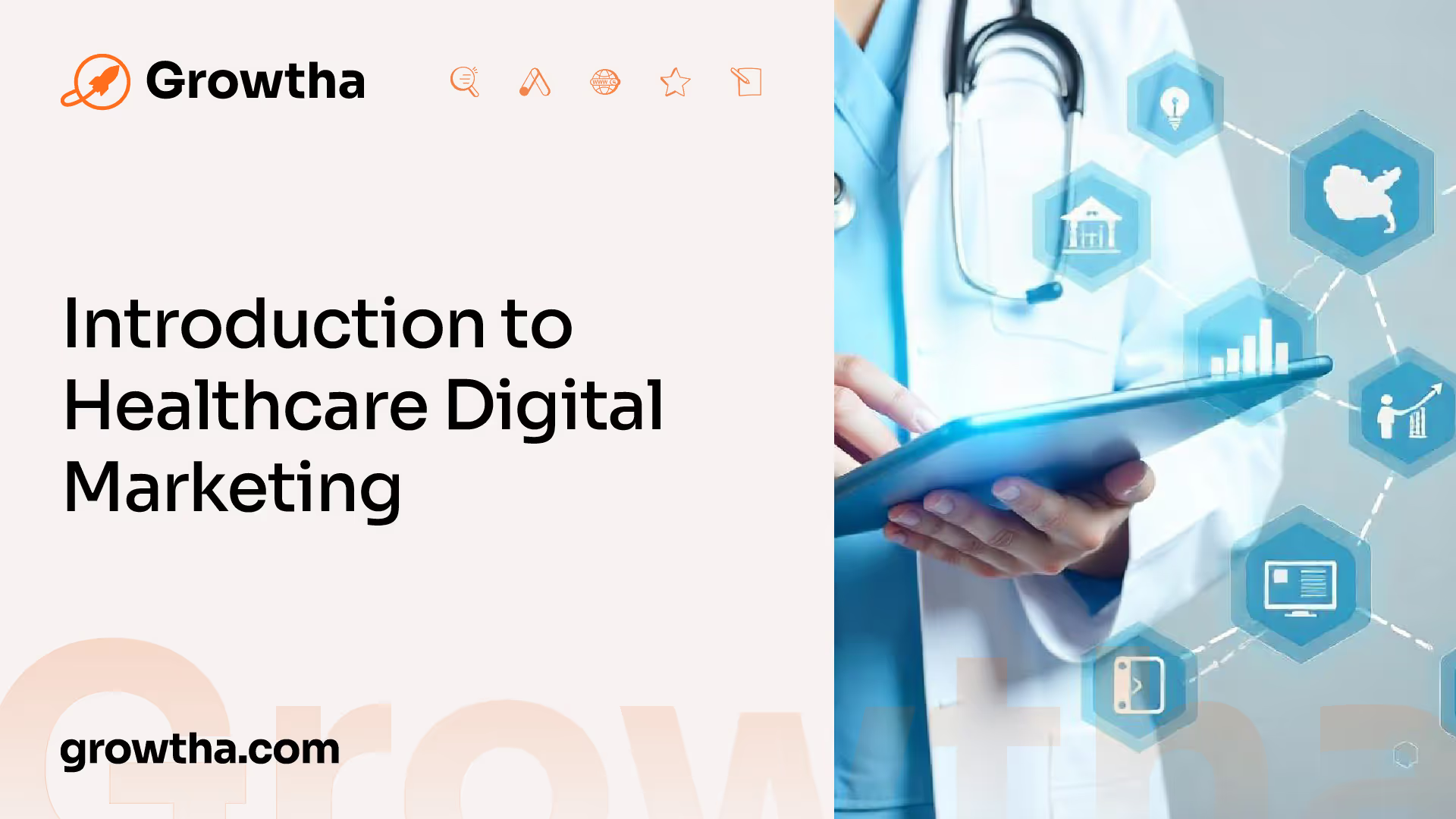
Introduction to Healthcare Digital Marketing
In today's digital world, healthcare businesses are increasingly recognizing the importance of digital marketing in reaching and engaging with their target audience. Let's explore what healthcare digital marketing entails and why it is crucial for the success of healthcare businesses.
What is Healthcare Digital Marketing?
Healthcare digital marketing refers to the use of digital channels and strategies to promote healthcare products, services, and brands. It involves leveraging various online platforms, such as websites, search engines, social media, and email, to connect with patients, healthcare professionals, and other stakeholders in the healthcare industry.
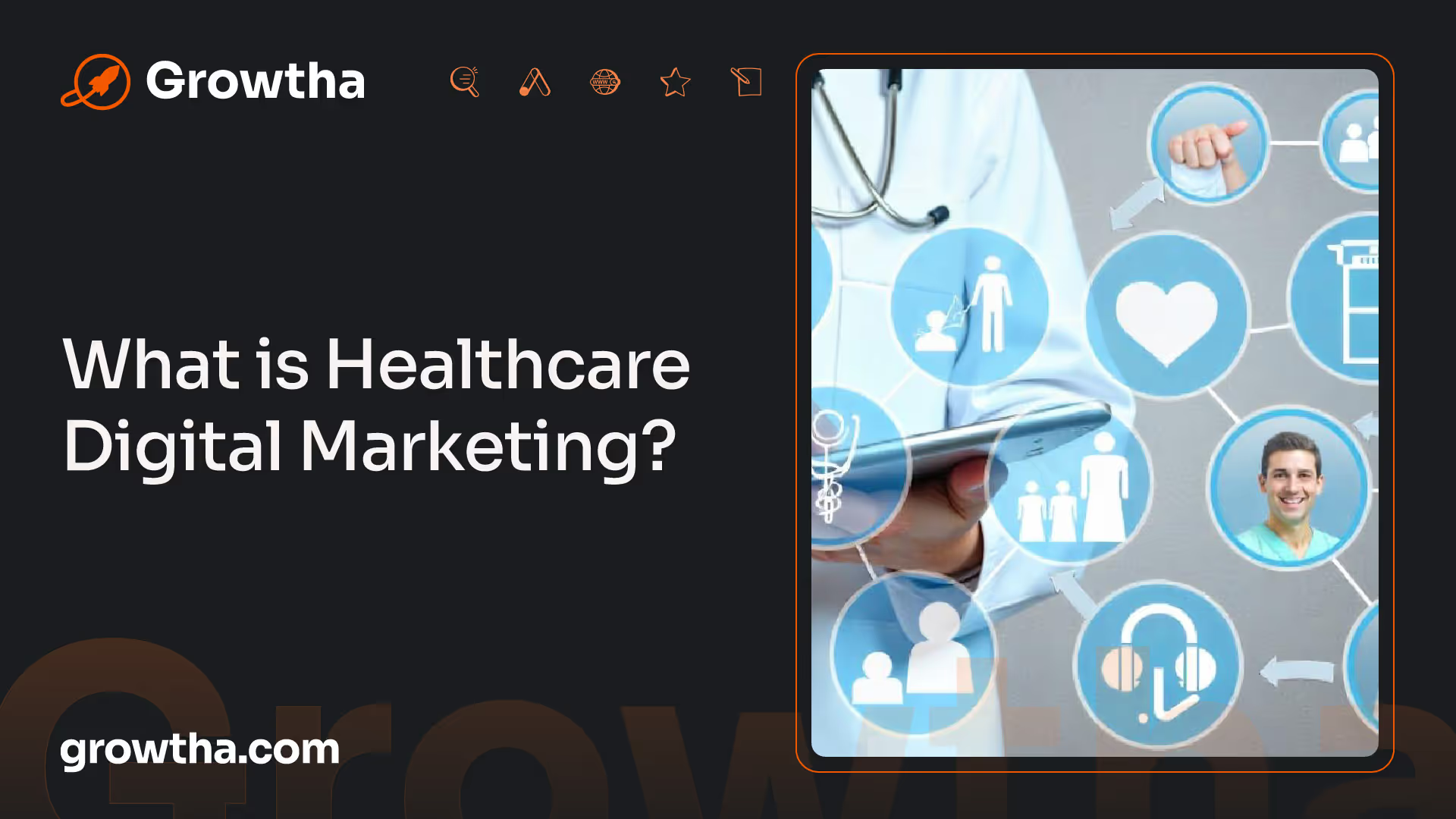
Digital marketing techniques are applied to raise awareness, build trust, and ultimately drive patient acquisition and retention. This includes activities such as search engine optimization (SEO), content marketing, paid advertising, social media marketing, and email marketing.
By utilizing these strategies effectively, healthcare businesses can enhance their online presence, establish thought leadership, and build strong relationships with their target audience.
Importance of Digital Marketing for Healthcare Businesses
Digital marketing has become indispensable for healthcare businesses due to the significant shift in consumer behavior. Patients and healthcare professionals are now actively seeking health-related information, researching treatment options, and seeking recommendations online. By embracing digital marketing, healthcare businesses can:
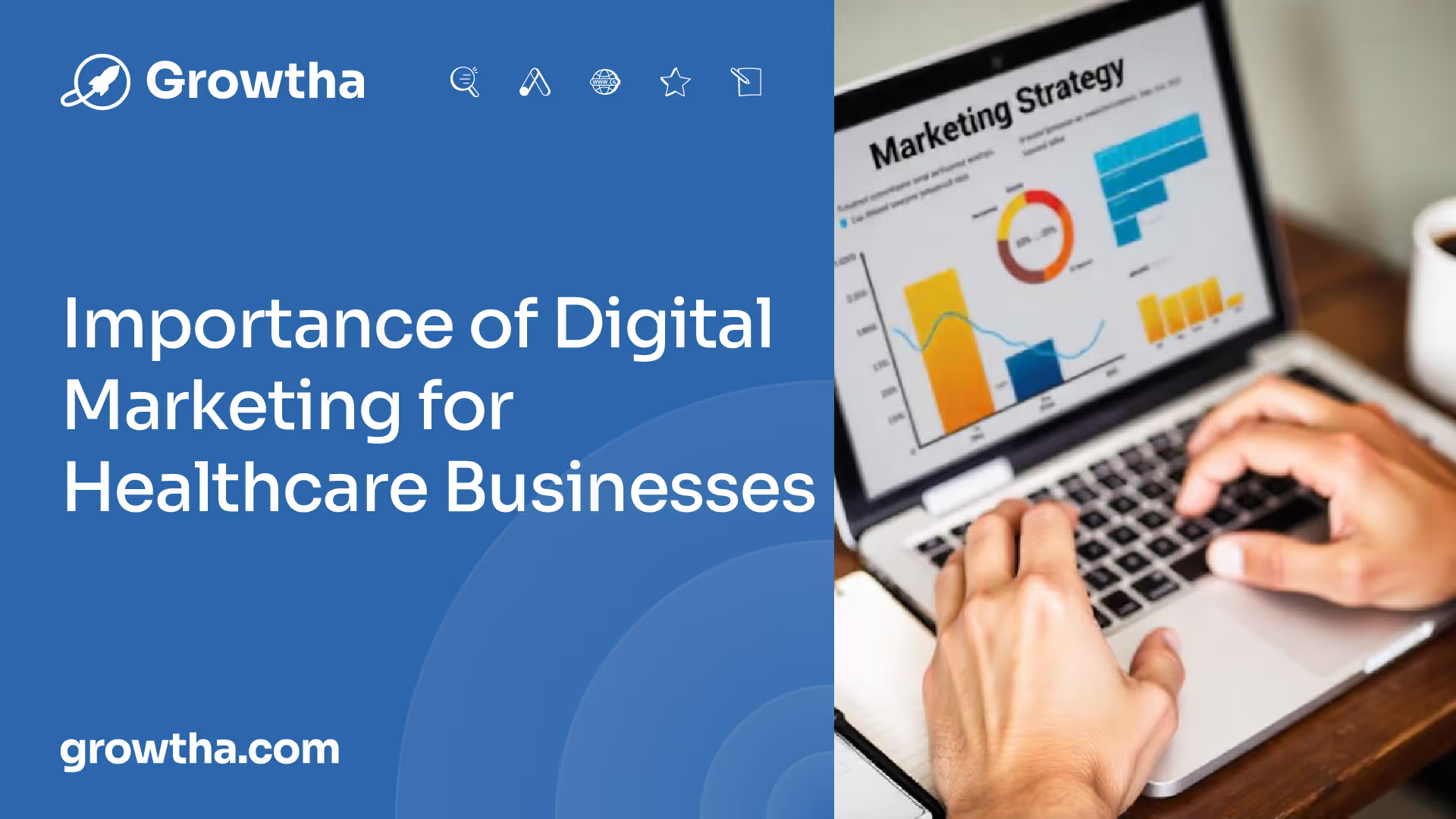
- Increase Visibility: With the majority of people relying on search engines to find healthcare information, digital marketing allows healthcare businesses to appear prominently in search engine results pages (SERPs), making it easier for potential patients to discover them.
- Build Trust and Credibility: By providing valuable and accurate health information through blogs, articles, and social media content, healthcare businesses can establish themselves as trusted authorities in their respective fields. This helps to build credibility and foster trust among patients and healthcare professionals.
- Targeted Reach: Digital marketing enables healthcare businesses to target specific demographics, locations, and interests. This ensures that their marketing efforts are directed towards the most relevant audience, increasing the chances of attracting potential patients who are actively seeking their services.
- Engage and Educate: Through engaging content, healthcare businesses can educate their audience about various health conditions, treatment options, preventive care, and more. This not only helps patients make informed decisions but also positions the healthcare business as a valuable resource.
- Measure and Optimize: Unlike traditional marketing methods, digital marketing provides the ability to measure and track the effectiveness of campaigns in real-time. This allows healthcare businesses to identify what strategies are working and make data-driven decisions to optimize their marketing efforts.
By embracing digital marketing, healthcare businesses can navigate the ever-evolving online landscape, connect with their target audience, and ultimately drive growth and success in the digital era
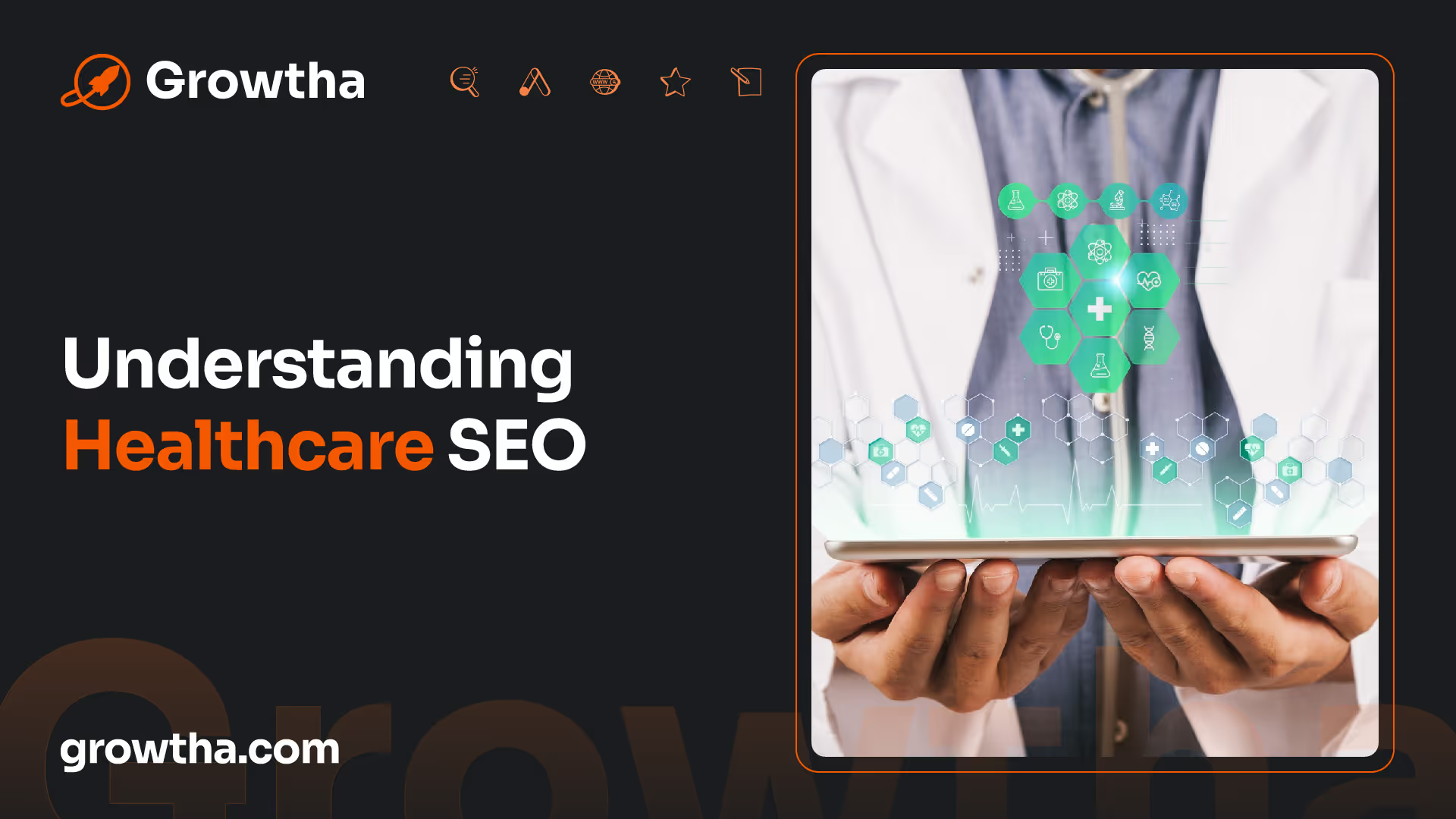
Understanding Healthcare SEO
In the digital age, having a strong online presence is crucial for healthcare businesses. This is where healthcare SEO (Search Engine Optimization) comes into play. Let's explore what healthcare SEO is and why it is important for healthcare businesses.

What is Healthcare SEO?
Healthcare SEO is a specialized branch of digital marketing that focuses on optimizing a healthcare website's visibility and rankings in search engine results. It involves implementing various strategies and techniques to improve a website's organic (non-paid) search engine rankings.
The goal of healthcare SEO is to increase the visibility of healthcare websites, attract more relevant traffic, and ultimately drive conversions. By optimizing the website's structure, content, and performance, healthcare businesses can improve their online presence and reach their target audience effectively.

Why is Healthcare SEO Important?
Healthcare SEO plays a vital role in the success of healthcare businesses in the online realm. Here are some key reasons why healthcare SEO is important:
- Increased Visibility: With the vast number of healthcare websites available, it's essential to stand out from the competition. Healthcare SEO helps improve a website's visibility in search engine results, making it more likely for potential patients and customers to discover the website.
- Targeted Traffic: By optimizing a healthcare website for relevant keywords and phrases, healthcare businesses can attract highly targeted traffic. This means that the website will be more likely to attract users who are actively searching for the specific healthcare services or information offered by the business.
- Credibility and Trust: When a healthcare website appears on the first page of search engine results, it enhances the credibility and trustworthiness of the business. Users tend to associate higher search rankings with authority, expertise, and quality, leading to increased trust in the healthcare brand.
- Cost-Effective Marketing: Compared to traditional advertising methods, healthcare SEO offers a cost-effective way to market healthcare businesses. Instead of paying for each click or impression, healthcare businesses can organically attract traffic through optimized content and website structure.
- Long-Term Results: While paid advertising campaigns provide immediate results, healthcare SEO focuses on long-term success. By implementing sustainable SEO strategies, healthcare businesses can benefit from continuous organic traffic and enhanced online visibility over time.
By understanding the importance of healthcare SEO and implementing effective strategies, healthcare businesses can navigate the competitive online landscape and reach their target audience effectively. The next section will delve into the key elements of healthcare SEO to further enhance the online presence of healthcare websites.

Key Elements of Healthcare SEO
To succeed in healthcare digital marketing, it's important to understand the key elements of healthcare SEO. These elements play a vital role in optimizing your website and improving its visibility in search engine results.
Let's explore three essential components of healthcare SEO: keyword research, on-page optimization, and building high-quality backlinks.
Keyword Research for Healthcare Businesses
Keyword research is a fundamental aspect of healthcare SEO. It involves identifying and targeting the most relevant keywords and phrases that your target audience is using to search for healthcare information or services. By understanding the keywords that resonate with your audience, you can optimize your website's content to attract organic traffic.

To conduct effective keyword research, you can use various tools that provide insights into search volume, competition, and related keywords. By selecting keywords that have a good balance of search volume and competition, you can optimize your website's content to rank higher in search engine results.
Here are a few examples of healthcare-related keywords:
Keywords
- Healthcare services
- Medical procedures
- Health tips
- Doctor reviews
- Healthcare news
Remember to incorporate your chosen keywords naturally into your website's content, including titles, headings, meta descriptions, and body text. This helps search engines understand the relevance of your content to user queries.
On-Page Optimization for Healthcare Websites
On-page optimization refers to the process of optimizing various elements on your website to improve its visibility in search engine results. This includes optimizing page titles, meta descriptions, headings, URLs, and image alt tags.
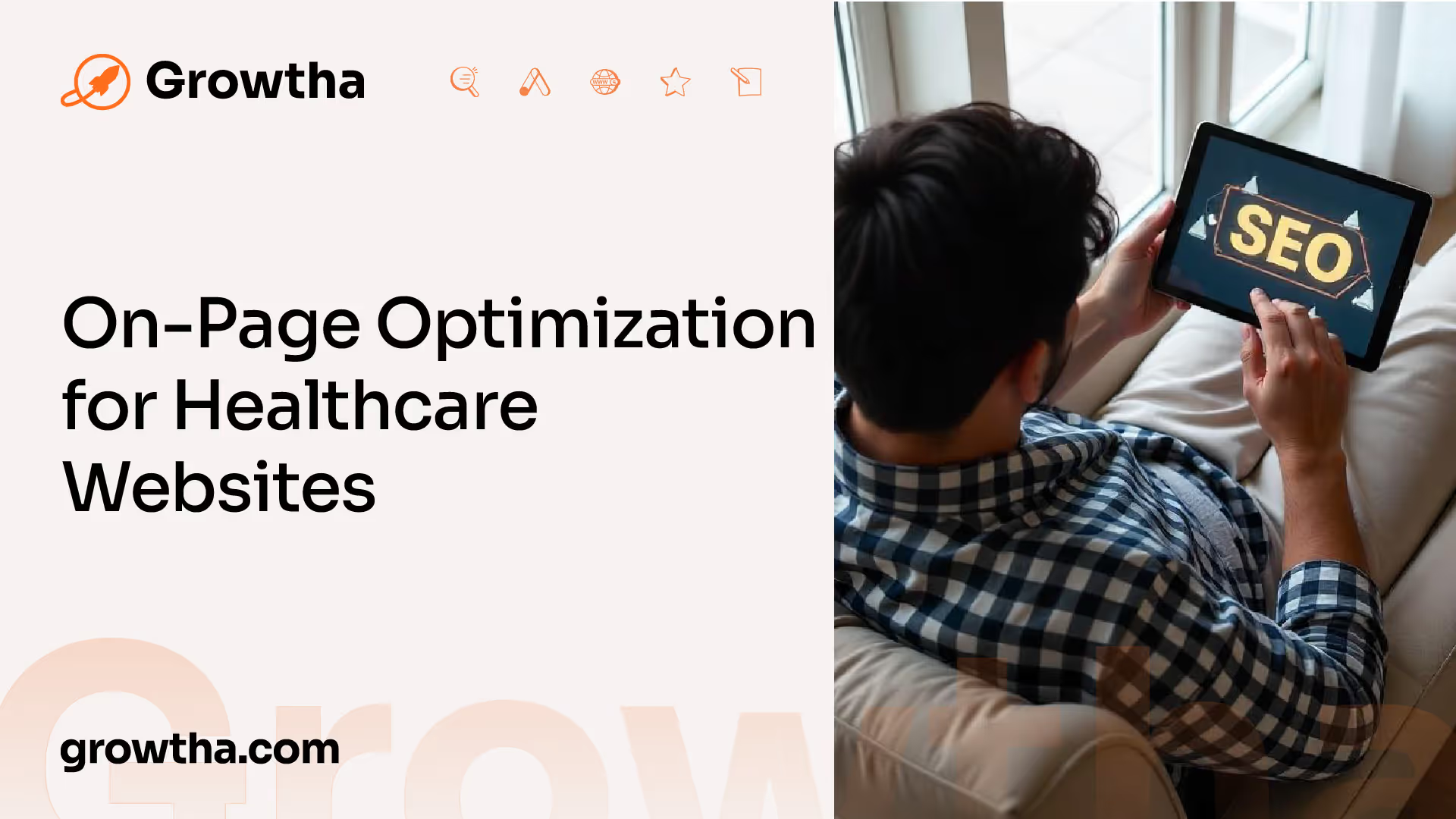
By optimizing these elements, you can improve the overall user experience and make it easier for search engines to crawl and index your website.
Here are some on-page optimization best practices for healthcare websites:
- Use descriptive and concise page titles that include relevant keywords.
- Craft compelling meta descriptions that entice users to click on your website.
- Structure your content using appropriate headings (H1, H2, etc.) and include relevant keywords.
- Optimize your URLs by making them concise and keyword-rich.
- Add alt tags to your images, using descriptive text that includes relevant keywords.
By implementing these on-page optimization techniques, you can improve your website's visibility and increase the likelihood of attracting targeted traffic.
Building High-Quality Backlinks for Healthcare SEO
Building high-quality backlinks is an essential aspect of healthcare SEO. Backlinks are links from other websites that point to your website. Search engines consider backlinks as a vote of confidence, indicating that your website is trustworthy and authoritative.
When building backlinks for healthcare SEO, it's crucial to focus on quality rather than quantity. High-quality backlinks from reputable and relevant websites carry more weight and can positively impact your search engine rankings.
Here are a few strategies to build high-quality backlinks for your healthcare website:
- Create valuable and shareable content that naturally attracts backlinks.
- Reach out to authoritative healthcare websites and offer to contribute guest articles or interviews.
- Participate in healthcare forums or communities and provide insightful comments and answers.
- Collaborate with other healthcare professionals or organizations to create informative content or resources.
By consistently building high-quality backlinks, you can improve your website's authority and visibility in search engine results.
By implementing these key elements of healthcare SEO – keyword research, on-page optimization, and building high-quality backlinks – you can enhance your website's visibility, attract targeted traffic, and ultimately achieve online success in the competitive healthcare industry.

Best Practices for Healthcare SEO
To achieve online success in the healthcare industry, implementing best practices for healthcare SEO is crucial. By following these guidelines, healthcare businesses can optimize their online presence and increase visibility in search engine results. Here are three key best practices for healthcare SEO:
Creating Relevant and Engaging Content
Developing relevant and engaging content is essential for healthcare SEO. By creating informative and valuable content, healthcare businesses can establish themselves as trusted authorities in their respective fields. This not only helps to attract and retain website visitors but also improves search engine rankings.
When creating content, healthcare businesses should focus on addressing the needs and concerns of their target audience. This can be done through blog posts, articles, videos, and infographics that provide helpful information, answer frequently asked questions, and offer insights into health-related topics.
Additionally, incorporating relevant keywords throughout the content helps search engines understand the context and relevance of the information. Conducting keyword research specific to the healthcare industry and integrating these keywords strategically can boost organic visibility and attract the right audience.
Optimizing for Local SEO in the Healthcare Industry
For healthcare businesses targeting local customers, optimizing for local SEO is essential. Local SEO involves optimizing online presence to rank higher in location-based search results. This is particularly important for healthcare providers who serve specific geographic areas.
To optimize for local SEO, healthcare businesses should ensure their website includes accurate and up-to-date information about their location, contact details, and services. Creating location-specific landing pages and including relevant keywords related to the target location can also enhance local search visibility.
Furthermore, listing healthcare businesses on online directories and review platforms, such as Google My Business, Yelp, and Healthgrades, helps improve local search rankings. Encouraging satisfied patients to leave positive reviews can also boost credibility and attract more local customers.
Utilizing Social Media for Healthcare Digital Marketing
In the digital age, social media plays a significant role in healthcare digital marketing. Social media platforms provide healthcare businesses with opportunities to engage with patients, share valuable content, and build brand awareness.
By establishing a strong social media presence, healthcare businesses can connect with their target audience and foster trust. Sharing informative and engaging content, such as health tips, patient success stories, and updates on services, helps to position healthcare businesses as reliable sources of information.
Moreover, social media platforms allow healthcare businesses to interact directly with patients, answering their questions, addressing concerns, and providing personalized care. This engagement can improve patient satisfaction and loyalty.
Utilizing social media for healthcare digital marketing not only increases brand visibility but also helps drive traffic to the website, ultimately enhancing search engine rankings.
By implementing these best practices, healthcare businesses can improve their online visibility, attract the right audience, and establish themselves as reputable sources in the healthcare industry. It's important to continuously monitor and adapt SEO strategies to stay ahead in the competitive digital landscape.
Measuring Success in Healthcare SEO
Once you have implemented healthcare SEO strategies, it's important to measure the success of your efforts to ensure that your digital marketing campaigns are effective.
Tracking and analyzing website traffic, monitoring keyword rankings, and evaluating conversion rates and return on investment (ROI) are key metrics to consider when assessing the performance of your healthcare SEO efforts.
Tracking and Analyzing Website Traffic
Tracking and analyzing website traffic is crucial for understanding the effectiveness of your healthcare SEO strategies. By utilizing web analytics tools such as Google Analytics, you can gain valuable insights into the volume of traffic your website receives, the sources of that traffic, and the behavior of your visitors.
Metrics to Consider
- Total website visits
- Organic search traffic
- Referral traffic
- Social media traffic
- Bounce rate
- Average time on page
Analyzing these metrics allows you to identify trends, patterns, and areas for improvement. For example, if you notice a significant increase in organic search traffic after implementing specific SEO techniques, it indicates that your efforts are paying off.
Monitoring Keyword Rankings
Monitoring keyword rankings is another important aspect of measuring healthcare SEO success. By tracking the rankings of your target keywords, you can assess whether your website is appearing in search engine results pages (SERPs) for relevant queries.
Regularly monitoring keyword rankings helps you gauge the effectiveness of your optimization efforts. If you notice improvements in keyword rankings over time, it indicates that your website is becoming more visible to potential visitors.
Evaluating Conversion Rates and ROI
Ultimately, the success of your healthcare SEO efforts is determined by the impact it has on your business's bottom line. Evaluating conversion rates and return on investment (ROI) can provide insights into the financial effectiveness of your digital marketing campaigns.
Conversion Metrics
- Leads generated
- Contact form submissions
- Online appointment bookings
- Sales or revenue generated
- ROI (Return on Investment)
By analyzing these conversion metrics, you can determine the effectiveness of your SEO strategies in converting website visitors into leads or customers. If you observe a positive trend in conversion rates and ROI, it signifies that your healthcare SEO efforts are driving tangible business results.
Measuring success in healthcare SEO is an ongoing process. By consistently tracking and analyzing website traffic, monitoring keyword rankings, and evaluating conversion rates and ROI, you can make data-driven decisions to optimize your digital marketing strategies and achieve online success in the healthcare industry.
FAQs
What are some examples of healthcare digital marketing?
Healthcare digital marketing can take many forms, including social media posts, email newsletters, search engine ads, and website content. For example, a hospital might use social media to share health tips and promote upcoming events, while a medical practice might send out a monthly newsletter with updates on new services and staff.
How does healthcare digital marketing differ from traditional marketing?
Traditional marketing often involves print ads, billboards, radio spots, or television commercials. While these methods can still be effective in certain situations, they generally lack the targeted approach and interactivity of digital marketing. Healthcare providers can use digital channels to connect with patients where they spend the most time online and engage them through valuable content.
Is healthcare digital marketing only for large hospitals or practices?
No! Any healthcare provider can benefit from a strong digital marketing strategy. In fact, smaller practices may have an advantage because they can create more personalized content that resonates with their target audience. Even individual doctors or practitioners can use social media or email newsletters to reach potential patients and build their brand.
How do I measure the success of my healthcare digital marketing efforts?
There are several metrics that healthcare providers can track to determine the effectiveness of their digital marketing campaigns. These include website traffic, social media engagement (likes, comments, shares), email open rates and click-through rates (CTR), conversion rates (e.g., how many people schedule an appointment after visiting your website), and return on investment (ROI). By analyzing these metrics over time, providers can adjust their strategies and tactics for maximum impact.
Conclusion
Healthcare digital marketing is an essential tool for providers to connect with potential patients and retain existing ones. By implementing a strong digital marketing strategy, healthcare providers can increase their visibility, engage with patients, and achieve their marketing goals.
Sources
- https://www.seattlenewmedia.com/blog/digital-marketing
- https://webmdignite.com/digital-marketing-healthcare
- https://www.cured.health/healthcare-digital-marketing
- https://colorwhistle.com/digital-marketing-for-healthcare
- https://mymarketing.io/blog/digital-marketing-in-the-healthcare
- https://www.itrobes.com/healthcare-digital-marketing/







